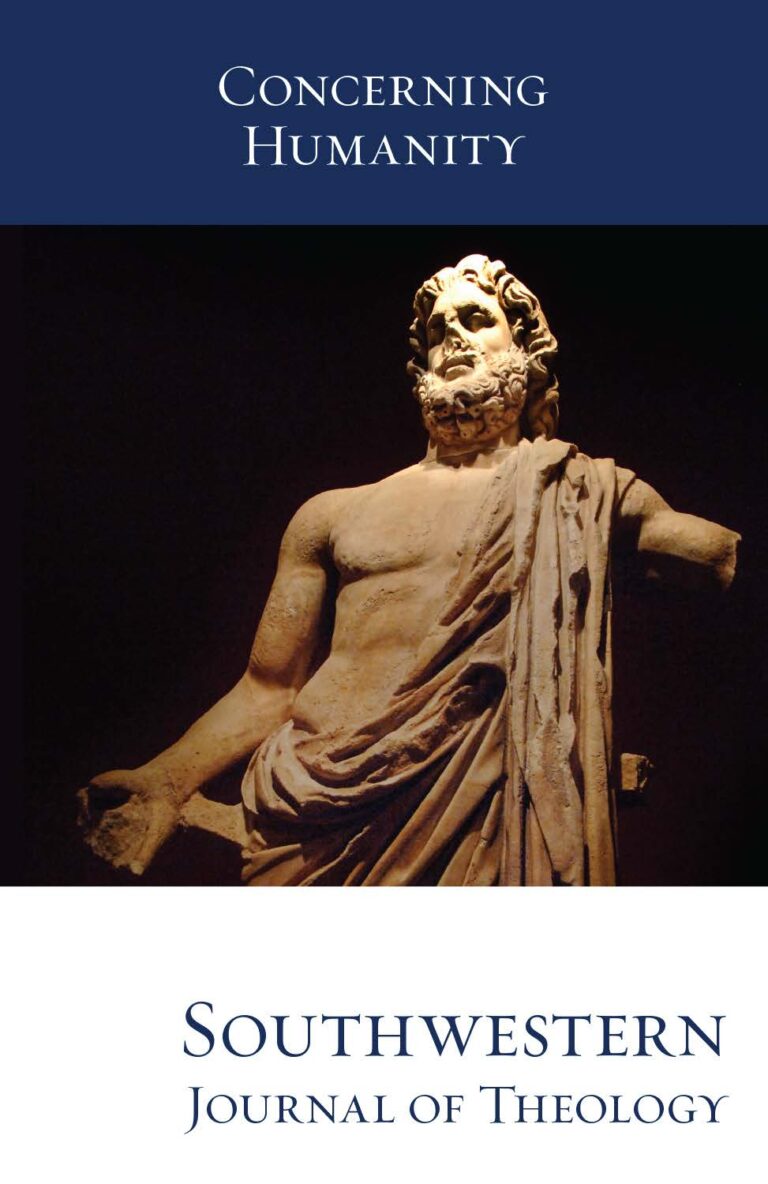
Concerning Humanity
Southwestern Journal of Theology
Volume 59, No. 1 – Fall 2016
Managing Editor: W. Madison Grace II
By John M. Rist. New York: Cambridge University Press, 2014. 430 pages. Hardcover, $124.00.
John M. Rist’s purpose in writing this volume is to demonstrate that Western culture has, since Augustine’s death, witnessed a continual attempt to build on Augustine and correct his errors. As Rist notes, Augustine Deformed is not necessarily a history of good ideas, but it does seek to present one plausible explanation for some trajectories in Western philosophy (16). The result has been an increase in false problems and false assumptions as each succeeding generation attempts to correct the preceding one without adequately evaluating the questions being asked. The progression of errors from Augustine’s own have led to atheism and nihilism, according to Rist.
After the introduction, where Rist explains his purpose and qualifies his method, he begins by explaining some of the debates that were ongoing before Augustine came onto the scene. Of particular interest are the topics of love, sin, and freedom. Interest in these topics is perhaps both the cause and result of his choice of Augustine as a beginning point. Rist focuses on the various philosophical interpretations of each of these topics, setting the stage for this volume to focus on broader philosophical debates and not only Christian concerns. Augustine preserves features of his classical foundations within these topics of his thought. For this reason, many recent scholars have searched in detail for platonic themes in Augustine’s work. Chapters 2 and 3 both deal with Augustine himself. The former focuses on those aspects of Augustine which Rist dislikes, such as Augustine’s notion of original sin and of the nature of God’s sovereignty in matters of salvation. The latter emphasizes Augustine’s thoughts on love, desire and knowledge, which Rist finds more palatable.
Following these three foundational chapters, Rist moves into an in-depth, chronological analysis of major thinkers in the Western tradition. His trek through Western thought traces Augustine’s influence through history from Anselm to Heidegger and Sartre. There is an amazing scope to this volume, but there is depth in Rist’s writing as he carefully and accurately describes the major elements of each group’s ideas without belaboring his explanations. Having concluded a whirlwind journey through Western tradition, Rist closes the book by first summarizing many of the points of philosophical error that developed through history. He then concludes by returning to Augustine’s thought, pointing out the errors that, if properly addressed, he believes would rectify Augustine and allow for a truer philosophy that would be less caustic than the modernisms and postmodernisms that developed in the wake of Augustine’s alleged errors.
A significant strength of this volume is its comprehensiveness. This book is an excellent commentary on a broad sweep of Western intellectual history. As with any commentator, each reader will find various points of disagreement, qualification, and confirmation. However, given the wide range of material covered in a succinct manner, Rist’s presentation is an agreeable approach. There are few scholars who could accomplish such a monumental task successfully. The chief strength of this volume is the unity of the themes considered. The concepts of love, sin, and freedom, which were significant emphases in Augustine’s writing, are traced clearly through each chapter. Those ideas prove to be identifiable across the centuries and significant in describing the contemporary philosophical milieu. This provides cogency for the project.
Despite its many excellent qualities, this volume suffers from an overemphasis on philosophy as the driving force for theology. Thus Rist, himself primarily a philosopher, continues the popular focus on philosophical themes in Augustine’s intellectual development, finding more continuity than discontinuity between Augustine’s pre and post-conversion thought. This approach means that the role of classical Greek philosophy in Augustine’s later theology is a bit overplayed in Rist’s presentation. While it is clear that the Bishop of Hippo never fully resolved his platonic suspicion of matter, particularly with respect to his sexual ethics, on many topics a gracious, chronological reading of Augustine reveals a progressive growth in the influence of Scripture and a diminution of the influence of classical Greek understandings. Rist does not allow sufficient room for Augustine’s growth in theology.
This book has explanatory power. It is not necessary to agree with every aspect of Rist’s analysis to gain significant value from reading this volume. It is a text that will be useful in the seminary classroom or a scholar’s library for years to come.





